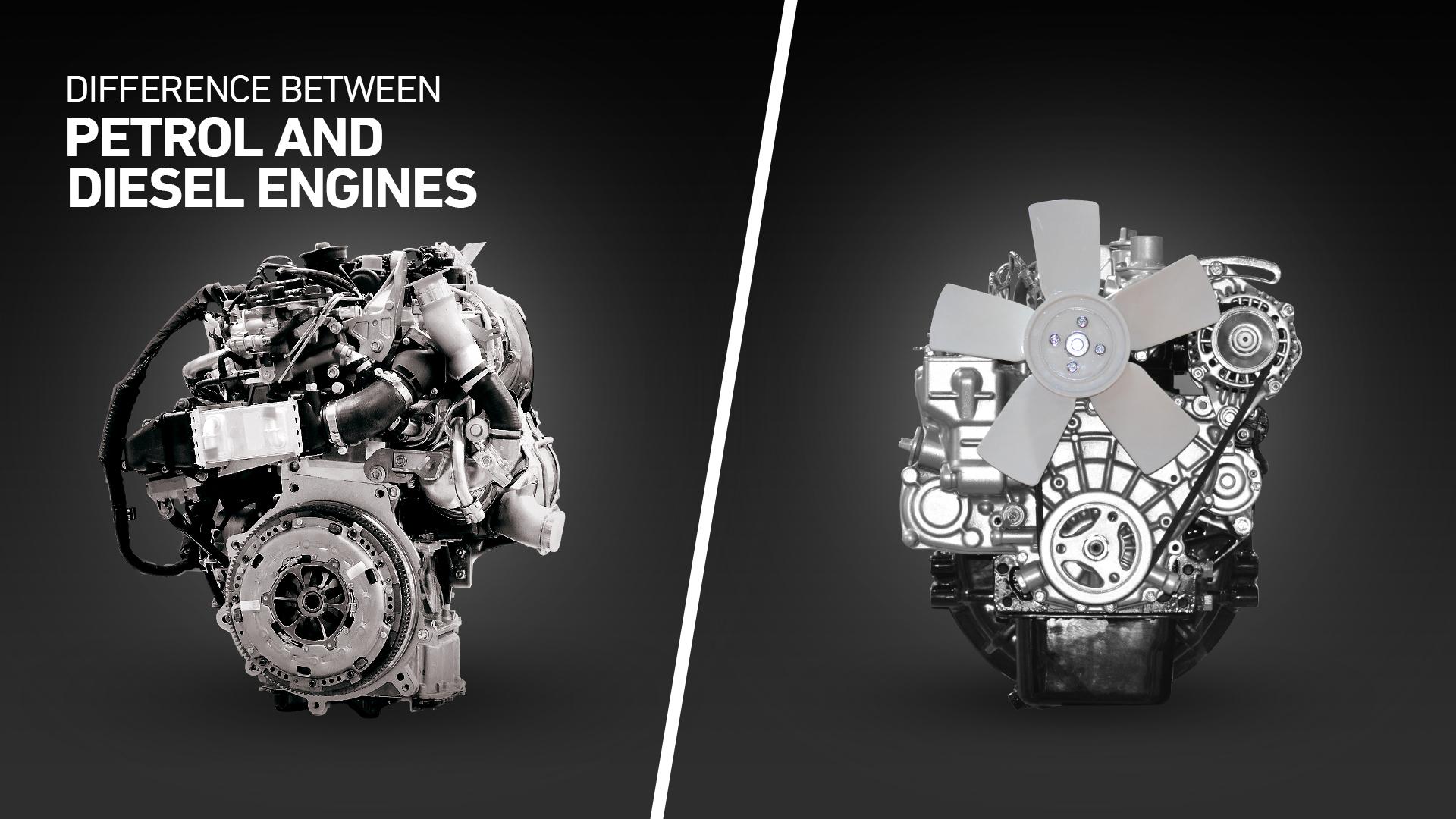Difference Between Petrol And Diesel Engines

Internal Combustion (IC) Engines have been a revolution ever since their invention. They have played a pivotal role in shaping modern transportation, machinery, and industries. Among IC engines, petrol and diesel are prominent ones. While both appear similar, take a closer look at them and you will find plenty of differences.
In this article, we will talk about the main differences between petrol and diesel engines based on several parameters.
1. Working Principle
2. Efficiency
3. Torque and Acceleration
4. Emission Levels
5. Engine Lifespan
6. Engine Noise
7. Suitability for Applications
Working Principle
Petrol engines work on the principle of the Otto cycle. It consists of mainly four main strokes: intake, compression, power, and exhaust. In the intake stroke, air with fuel is drawn into the cylinder. During compression stroke, this mixture is compressed with the upward movement of the piston. Post this, the sparkplug ignites the air-fuel mixture, causing combustion and producing power. Finally, the exhaust stroke expels the burnt gases from the cylinder. The Otto cycle relies on a spark plug for ignition, which is why petrol engines are also known as spark-ignition engines.
Diesel engines work on the principle of the Diesel cycle. Just like petrol engines, they too have four strokes: intake, compression, power, and exhaust. However, the key difference is that instead of a spark plug, diesel engines rely on the heat generated by the extremely high compression to ignite the fuel. During the compression stroke, the air is compressed to such a high pressure and temperature that when fuel is injected, it spontaneously ignites. The remaining part of the cycle follows a similar pattern to the Otto cycle, with power produced during the combustion stroke and exhaust gases expelled in the final stroke.
Efficiency
Petrol engines generally have pistons with shorter strokes than diesel engines. Hence, a petrol engine’s piston usually completes its stroke in a shorter time than a diesel engine’s piston. The compression ratio of petrol engines ranges from 8:1 to 12:1, while that of diesel engines ranges from 14:1 to 23:1. Due to this, petrol engines have lower efficiency than diesel engines.
Torque and Acceleration
Diesel engines tend to produce more torque as compared to petrol engines. Due to this, diesel engines are widely used in powering heavy-duty vehicles like trucks, buses, and tractors, which require more torque for better performance. On the other hand, petrol engines are known for offering quicker acceleration due to their ability to achieve other RPMs.
Petrol engines are suited for speed and agility while diesel engines excel in delivering consistent torque.
Emission Levels
When it comes to emissions, diesel engines typically produce higher levels of nitrogen oxides (NOx), and particulate matter (PM) compared to petrol engines. However, diesel engines have lower carbon dioxide (CO2) emissions due to their higher fuel efficiency. Constant advances in technology with diesel particulate filters (DPF), and selective catalytic reduction (SCR) systems, have helped reduce emissions from diesel engines. Most diesel engine manufacturers nowadays implement these technologies, ensuring their engines meet stringent emission standards.
Engine Lifespan
Commercial diesel engines generally have a longer lifespan compared to petrol engines. This is due to their robust design and construction. They are built to handle higher compression ratios and tend to operate under greater stress. The materials used in the manufacturing of diesel engines allow them to withstand prolonged use and harsher conditions.
Petrol engines on the other hand tend to operate at higher RPMs. Due to this, they have more wear and tear, thus affecting their overall lifespan.
Engine Noise
When comparing engine noise, commercial diesel engines are considerably louder than petrol engines. A major reason for that is the fact that diesel engines have higher compression ratios. Hence this leads to a more forceful combustion process.
The direct fuel injection and combustion pressure contribute to the characteristic clatter or ‘diesel knock’ often associated with diesel engines. On the other hand, petrol engines generally operate more quietly because they use spark ignition and have a lower compression ratio, resulting in smoother and quieter combustion.
Suitability for Applications
Petrol engines are heavily used in applications where lightweight and high performance is prioritized. Due to this, you will find its usage in passenger cars and motorcycles, where rapid acceleration and smooth operation are of prime importance.
In contrast to this, diesel engines are known for their robustness and durability, making them ideal for heavy-duty applications such as trucks, construction equipment, and agricultural machinery. Their high torque output and fuel efficiency under load make them well-suited for tasks requiring sustained power and endurance.




